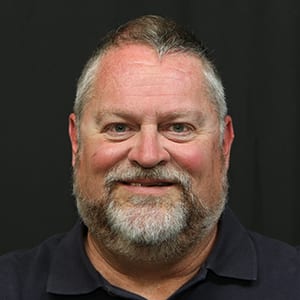MOORESVILLE, N.C. — 2021 was a difficult year for the motorsports community as we lost some legends of the sport and a few friends along the way.
Three-time Indianapolis 500 winner and 10-time Pikes Peak Hill Climb champion Bobby Unser died on May 2. Unser was 87.
On June 13, Bobby Unser Jr. unexpectedly died from blood clots after undergoing surgery for a broken hip. He was 65.
Robin Miller, perhaps the most influential member of the media in Indianapolis 500 history, died after a lengthy battle with leukemia and multiple myeloma on Aug. 25.
December brought more loss.
Four-time Indianapolis 500 winner Al Unser died Dec. 9 following a 17-year battle with cancer.
An invitation-only gathering of around 200 met at the Unser Family Museum to celebrate the life of Al Unser on Dec. 18.
That was only the beginning of the heartbreak that would close the year.
T.E. McHale, the longtime motorsports communications manager for Honda Racing, died of colon cancer the weekend of Dec. 17-19.
The 68-year-old McHale had retired from Honda in 2020. Even his closest friends were unaware that McHale was battling cancer when he attended Miller’s “Celebration of Life” on Oct. 2.
Steve Richards of the Performance Racing Network died of COVID-19 complications on Dec. 22.
Richards was placed in the Intensive Care Unit in early November and spent close to two months there.
Deke Houlgate, a longtime West Coast sports publicist whose clients included such auto racing greats as Mario Andretti, Rick Mears, Richard Petty and Johnny Rutherford, died Dec. 26. He was 91. According to his son, Greg, Houlgate died of COVID-19-related illness.
Houlgate began his career in sports after graduating from the University of Southern California in 1954. He started as a copy boy in the sports department at the Los Angeles Times and later worked as a general assignment reporter at the newspaper. He also worked as a reporter at the Las Vegas Sun and Los Angeles Herald-Examiner.
In 1962, Houlgate opened his own public relations firm. He promoted Riverside Int’l Raceway and the early years of the Virginia Slims women’s pro tennis tour in Los Angeles. He worked for automotive designer and driver Carroll Shelby. Eventually, he promoted events across motorsports, including Indy cars, stock cars, drag racing and motorcycle racing.
On Dec. 29, Charlie Vincent, a longtime motorsports reporter and columnist for The Detroit Free Press, died at age 80. One of Vincent’s granddaughters, Gabriella Barbieri, wrote on social media that Vincent suffered from idiopathic pulmonary fibrosis, a hardening of the lungs.
Vincent was a fixture in the media centers at Indianapolis Motor Speedway, Daytona Int’l Speedway and Michigan Int’l Speedway. He also covered the Detroit Tigers, Detroit Pistons, Detroit Lions and Detroit Red Wings.
Each of these deaths has left a lasting impact on me because I knew each individual personally. Bobby Unser had gone from a childhood racing hero to “Uncle Bobby” — a very close friend in recent decades.
Al Unser was “Big Al” — a man of few words as a race driver but discovered the “gift of gab” during his retirement. He had tremendous stories and a great sense of humor.
Miller may have been the best reporter I knew. Although he flunked out of Ball State, Miller’s instincts made him a fearless reporter, but he was also one of the funniest people in the history of auto racing.
McHale was more than a colleague; he was a close friend. At times, he was also a mentor who always had time to take one of my seemingly endless phone calls to walk me through the obstacles of life with some of his sage advice. McHale was familiar with the path I was traveling, and his advice came straight from the heart.
He also had one of the best senses of humor of anyone I ever knew, from obscure Monty Python references to music’s one-hit wonders.
Richards was a regular in NASCAR. He was likable and easy to talk to. The last time I saw him was at the Oct. 31 NASCAR Cup Series race at Martinsville (Va.) Speedway. Four days later, Richards began getting sick, the beginning of his battle with COVID-19 that ultimately claimed his life.
Houlgate showed me the way when I first started covering auto racing during the 1980s. He treated me the same as if I worked for the Chicago Tribune, the New York Times or the Indianapolis Star. He worked out of the “Pennzoil Room” at the Indianapolis Motor Speedway.
The door was always open and the fridge was always stocked with cold cuts and even colder drinks for those long days at Indianapolis Motor Speedway.
I got to know Vincent during the summer of 1981 when I was the sports intern at The Blade in Toledo, Ohio. We struck up an amiable relationship that lasted through the early 2000s, when the newspaper business began to change. Charlie Vincent was “Good People.”
It’s hard enough to lose legends of the sport, but even more difficult when they are your friends.
